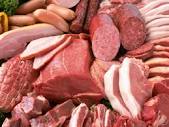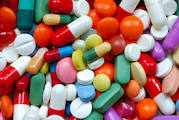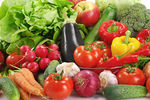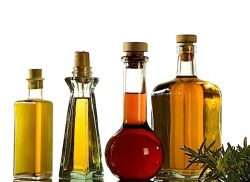High cholesterol is not the problem it’s made out to be since 75% of the people who have heart attacks have what is considered to be normal levels of cholesterol. 75% of the cholesterol that circulates in your blood is made by your liver the other 25% comes from food but none from plants. Normally cholesterol helps the cells in our body do their job but when cholesterol levels are unusually high it can lead to the accumulation of plaque in the arteries causing them to narrow, thus restricting the flow of blood. This blockage, known as atherosclerosis can trigger heart disease and has also been associated with strokes and Alzheimer’s disease. So……
What is cholesterol and why we need it?
Put simply, cholesterol is a type of fat that is carried in the blood and stored in fat cells throughout the body. One of its most important functions is to help in the production of steroid hormones, without which we would not be able to function properly with regard to sex, weight, bone health, digestion and mental status. Testosterone, oestrogen and progesterone (the primary pregnancy hormone) are all produced by cholesterol, in fact, without cholesterol your body could not produce any hormones at all. Cholesterol is also used to help the liver create bile which helps with the digestion of foods. It is also a major constituent of the brain which has the most cholesterol of all the body’s organs. It plays a vital role in your cells ability to communicate with each other, helps your nerves function correctly and helps with the synthesis of vitamin D from sunshine. In fact, if your body stopped producing cholesterol you would die. Low cholesterol is associated with cancer, liver disease, stroke and more and a study from 2005 in the American Academy of Neurology concluded that “high total cholesterol in late life is associated with a REDUCED risk of dementia”.
How do you get high cholesterol?

There are usually no symptoms of high cholesterol but it is simple to detect and there are many ways to bring it down. Detection is carried out by way of a blood test known as a “fasting lipoprotein profile” which measures the different types of cholesterol in your blood, after you have fasted for about 9 to 12 hours. The results will show the levels of HDL “good” cholesterol, LDL “bad” cholesterol and triglycerides, another type of fat. Total cholesterol is a combined measurement of HDL, LDL and VLDL (very low density lipoprotein, a precursor to LDL). When checking cholesterol it is the ratio that is important. Take your overall cholesterol figure, divide it by your HDL figure and if the result is 4 or less that is fine. If the figure is slightly higher there is still no need to worry as slightly high cholesterol is not as dangerous as very low cholesterol. If it is unusually high 7+ then you should take immediate steps to bring it down.
There are several factors that can make you more likely to develop high cholesterol but for most people saturated fat and trans-fats are the biggest culprits. Below are some factors for high cholesterol. Women usually have lower levels of total cholesterol than men of the same age and higher levels of HDL “good” cholesterol. This is due to the female hormone oestrogen, which drops off after a woman’s child bearing years causing a rise in cholesterol levels after about age 55 years. Some factors for high cholesterol …….
• A family history (genetics)
• Being overweight
• Getting older
• Eating a diet high in saturated fat, cholesterol and trans-fats.
What are trans-fats? Trans –fats are made when hydrogen is added to vegetable oils through a process called hydrogenation, which makes the oil less likely to spoil. Using trans-fats in the manufacturing of foods helps the foods stay fresh longer, have a longer shelf life and have a less greasy feel. They are unsaturated fats which are not common in nature although small amounts occur naturally in beef, lamb and full fat dairy products. Like saturated fats, trans-fats raise LDL “bad” cholesterol and lower HDL “good” cholesterol, thus increasing the risk of heart disease. Trans-fats also go by the name of trans- fatty acids or partially hydrogenated fats and are usually found in fast foods, packaged foods, fried and frozen foods, margarine spreads and many baked goods. Ironically, fully hydrogenated oils do not have the same adverse side effects as partially hydrogenated oils. So read your food labels carefully.
Chemical remedies for high cholesterol.

Statins are the most prescribed drug for high cholesterol and in the UK about 7 million people per year take them on a daily basis. This figure is set to rise to about 10 million. Research has shown, however, that about 25% of people who were on statins have stopped taking them. Statins work by blocking the production of cholesterol in the liver but they have been reported as having severe adverse side effects, some of which are headaches, nausea, muscle pain, vomiting, constipation, sleep disturbances, decreased insulin sensitivity, depression, memory loss and erectile dysfunction.
Two other major side effects of statins are (1) that they may drive your cholesterol down to too low a level, which could lead to memory loss and even dementia, violent behaviour, aggression and moodiness due to a reduction in the hormone serotonin (2) Statins also reduce the hormone Co-enzyme Q10 (CoQ10) which performs some important functions in your heart and every cell in your body, including the regulation of your heartbeat. As you age your body produces less of this hormone which makes the situation worse if you are also taking statins.
Niacin (vitamin B3) is also very effective in reducing cholesterol but comes with a side effect known as “flushing”, which is a tingling, burning sensation on all or parts of the skin, which can last for about three to four minutes and is extremely uncomfortable. Taking an aspirin half an hour before taking niacin is said to prevent flushing. Alternatively, taking niacin in a form known as Inositol does away with the flushing.
Natural ways to lower high cholesterol
 There are simple but very effective ways to reduce high cholesterol naturally. Losing weight, giving up smoking, exercising, drinking alcohol in moderation and eating a healthy diet low in saturated fat is top of the list. Adding certain herbs and spices to your low fat diet will also reduce high cholesterol and without the adverse side effects associated with drugs. Herbs such as fenugreek (methi), fennel, holy basil (tulsi) and garlic, although the latter may interact adversely with some medications, are very effective. Spices such as cinnamon, cloves and turmeric and fruits like coconut and avocado are all very effective in reducing cholesterol levels and one must not forget soluble fibre from sweet potatoes, oats, barley, plantains, breadfruit, okras, lentils and beans, olive oil and fish oils, mackerel, salmon, herring, sardines and tuna but beware of the high mercury content of tuna. Both garlic and turmeric are blood thinners and can be used as natural alternatives to aspirin. Among its many attributes turmeric also raises HDL “good” cholesterol, reduces LDL “bad” cholesterol and helps the liver eliminate excess cholesterol in a similar way to fibre. Needless to say this is a process which can become an everyday part of your diet and not a quick fix.
There are simple but very effective ways to reduce high cholesterol naturally. Losing weight, giving up smoking, exercising, drinking alcohol in moderation and eating a healthy diet low in saturated fat is top of the list. Adding certain herbs and spices to your low fat diet will also reduce high cholesterol and without the adverse side effects associated with drugs. Herbs such as fenugreek (methi), fennel, holy basil (tulsi) and garlic, although the latter may interact adversely with some medications, are very effective. Spices such as cinnamon, cloves and turmeric and fruits like coconut and avocado are all very effective in reducing cholesterol levels and one must not forget soluble fibre from sweet potatoes, oats, barley, plantains, breadfruit, okras, lentils and beans, olive oil and fish oils, mackerel, salmon, herring, sardines and tuna but beware of the high mercury content of tuna. Both garlic and turmeric are blood thinners and can be used as natural alternatives to aspirin. Among its many attributes turmeric also raises HDL “good” cholesterol, reduces LDL “bad” cholesterol and helps the liver eliminate excess cholesterol in a similar way to fibre. Needless to say this is a process which can become an everyday part of your diet and not a quick fix.
Co-enzyme q 10
Coenzyme q 10 is a natural antioxidant which the body produces but is also found in many foods. Its main function is the generation of energy within cells. It is found in every cell in the body but there are higher concentrations in the organs with higher energy requirements such as the heart, liver and kidneys. In heart muscle cells it also plays a vital role in the use of oxygen. Research suggests that CoQ10 may slow down the progression of Alzheimer’s disease and low levels have been observed in people with Parkinson’s disease.
CoQ10 is sold as a dietary supplement and not a medicine so the quality can vary tremendously. A broad rule of thumb is that the lower the price the more inferior the product, so you could as well save your money if you are buying a cheap brand. The best way around this is to buy CoQ10 in a form known as Ubiquinol which is more readily absorbed by your body. Two other points to remember here are that ubiquinol is fat soluble which means that it should be taken with a meal, as the meal should contain some fat and also anything that is fat soluble can be stored in the body, similarly vitamins A,D,E and K. So, what has all of this got to do with cholesterol? It has more to do with the most popular drug used to reduce high cholesterol. Yes, statins. As you can see CoQ10 is extremely important for heart health and proper heart functioning and one of the reported side effects of statins is that they destroy CoQ10. So, if you are taking statins and you intend to stay on them then you should also take a proper CoQ10 supplement. It would, however, be better to consider getting off these drugs and reducing your cholesterol naturally by eating plant based foods which have no cholesterol whatsoever but lots of soluble and insoluble fibre. Remember there is no problem with moderately high cholesterol.

